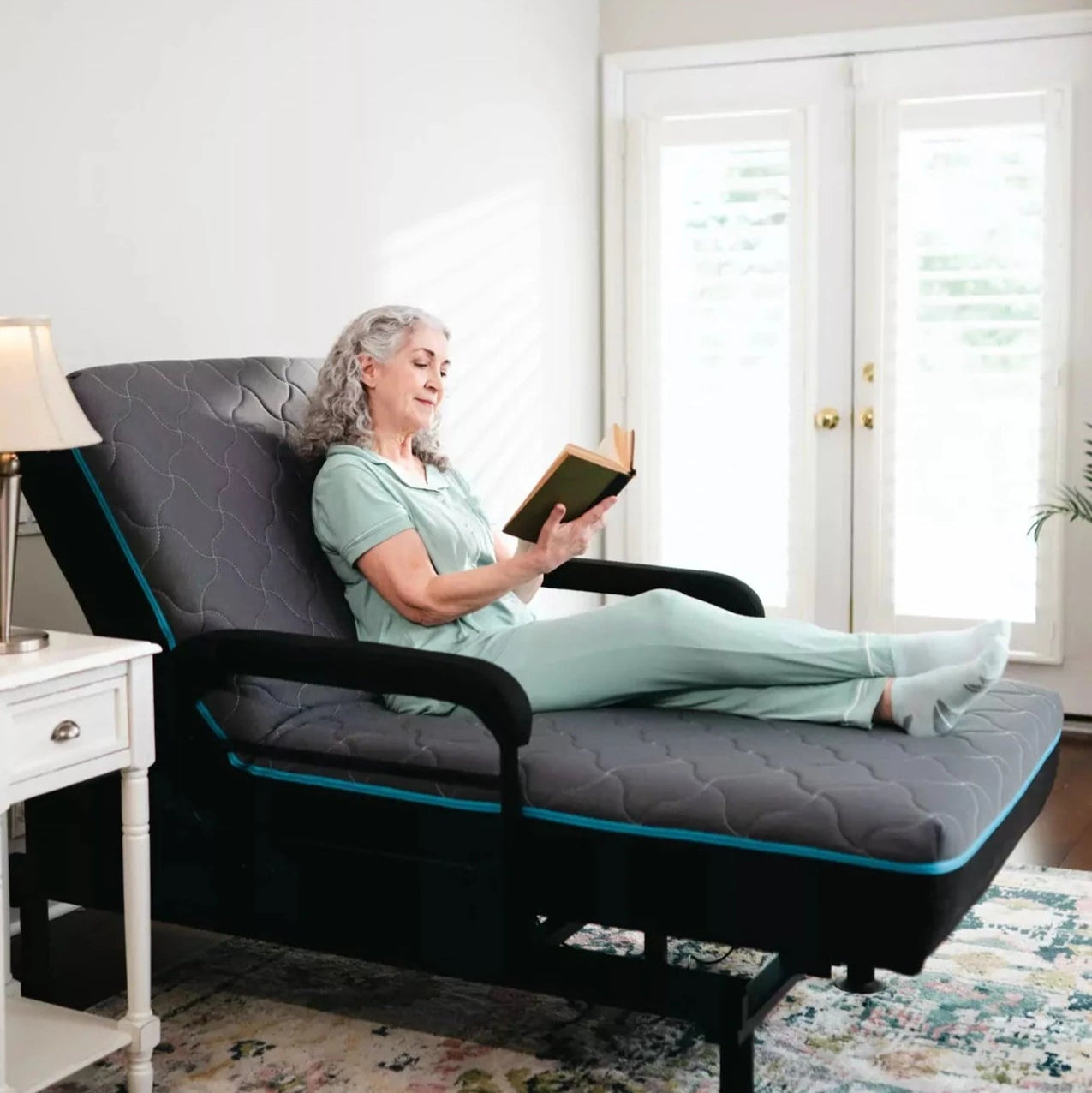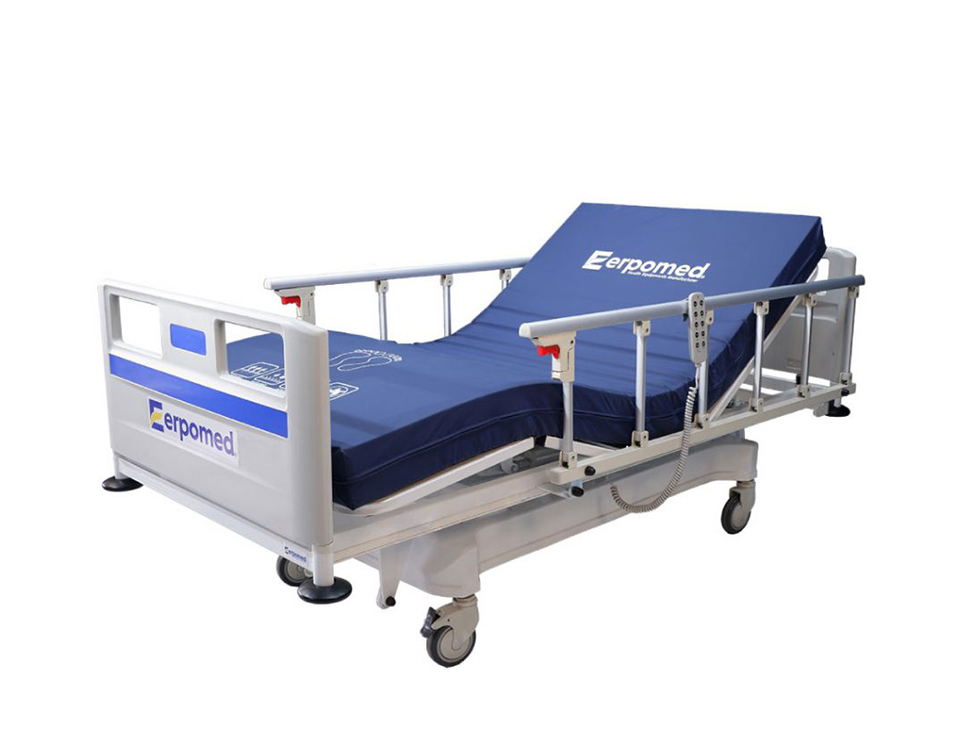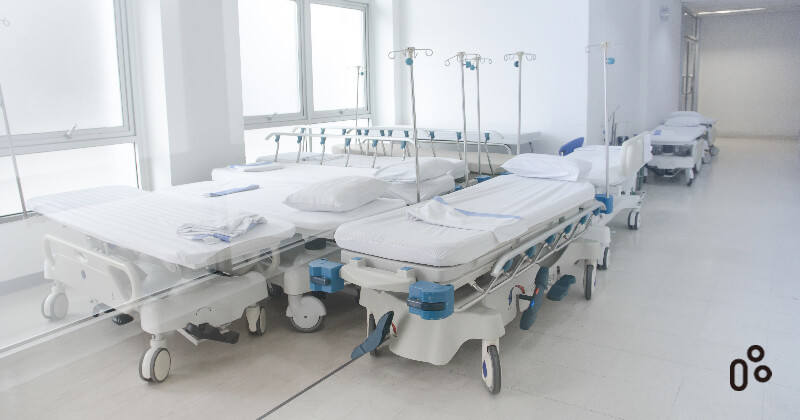An Unbiased View of Hospital Beds For Home Use
Table of ContentsHospital Beds For Home Use Fundamentals ExplainedHospital Beds For Home Use Can Be Fun For AnyoneWhat Does Hospital Beds For Home Use Mean?Hospital Beds For Home Use Fundamentals ExplainedSome Of Hospital Beds For Home UseHospital Beds For Home Use Things To Know Before You Get ThisWhat Does Hospital Beds For Home Use Mean?
There are three primary kinds of medical facility beds: manual, semi-electric, and fully-electric. These beds utilize hand cranks to readjust the bed's elevation and raise and lower the head and the foot.
Semi-electric beds have an electric motor to raise and lower the head and foot portions of the bed. Patients and caregivers change the positioning by pushing buttons utilizing a hand necklace. The elevation of the bed is readjusted by hand with a hand crank. Full-electric beds have an electrical motor that can elevate the head and foot sections of the bed along with the whole height and positioning of the bed.
More About Hospital Beds For Home Use
There are several kinds of health center beds, each created to meet particular individual demands. Right here are some common kinds: This is the most common type of hospital bed, designed for basic clinical use.
Lower to the ground than a conventional bed. This kind of bed is designed for bigger individuals, with a bigger frame and greater weight ability than a standard bed. This sort of bed is developed especially for kids, with smaller sized sizes than a conventional bed. Unique functions such as complete length side rails and cartoon design.
This sort of bed is created for critically unwell individuals that call for open surveillance and specialized clinical devices such as ventilators and infusion pumps. This sort of bed is designed for use during labor and shipment, with adjustable placements and functions to support the mother and baby during the birth process.
Not known Factual Statements About Hospital Beds For Home Use
Several feature and the devices perform expanding traction to various parts of the vertebra and the extremities without moving the body. These are simply a couple of instances of the sorts of healthcare facility beds available. The particular kind of bed utilized will depend upon the individual's condition, medical requirements, and other factors.
Right here is the thing you need to understand. A one-function healthcare facility bed is a clinical bed that enables an individual to move just the head or foot section up or down. A 2 function healthcare facility bed generally describes a sort of clinical bed that has 2 flexible features to aid patients in healthcare facilities or care centers.

Hospital Beds For Home Use Things To Know Before You Buy
A 7-function ICU bed is a type of clinical bed that supplies several flexible features to sustain critically sick individuals in a critical care unit (ICU) (hospital beds for home use). The 7 functions normally consist of: Backrest adjustment: The back-rest can be changed to numerous angles to assist the client sit up or rest easily
Height modification: The bed can be raised or lowered to make it easier for patients to enter and out of bed, and for caretakers to supply treatment. Trendelenburg placement: The entire bed can be slanted to my explanation promote blood flow and circulation in the body. Reverse Trendelenburg position: The bed can likewise be tilted in the contrary instructions to advertise blood circulation and circulation in the top body.
1. What Dimension is a Hospital Bed? 2. Just how much Does a Health Center Bed Cost? 3. Why Do Hospital Beds Have Side Bed Rails? 4. What Are The Main Medical Facility Bed Components?. While even more cost effective than electric models, these beds call for physical effort for modifications. The main benefits of manual beds are their cost and integrity, as they don't rely upon electricity. Nonetheless, the demand for hand-operated effort can be a limitation in scenarios where quick changes are required or where caregivers encounter physical visit this page obstacles.
The Hospital Beds For Home Use Statements
Semi-electric healthcare facility beds supply an equilibrium of guidebook and electric controls. These beds give a suitable center ground in between guidebook and fully electric choices, offering convenience of use without the full price of electric versions.
Semi-electric beds are fit for clients that require moderate changes to the head and foot sections but can handle without regular elevation adjustments. This makes them an economical option for those looking for convenience and convenience without the need for consistent repositioning. Totally electrical medical facility beds feature electric controls for seamless changes to the height, head, and foot sections.
Specialty medical facility beds, such as ICU beds, long-term treatment beds, and bariatric beds, are thoroughly made to attend to specific clinical needs. These beds provide tailored treatment for diverse individual teams, enhancing both results and convenience. In the adhering to areas, we will certainly explore the primary kinds of specialized healthcare facility beds, detailing their specific benefits and applications.
With years of experience in manufacturing electrical linear actuators - hospital beds for home use and close partnership with the healthcare market, TiMOTION is well-positioned to provide reputable health care solutions. Our vertically incorporated business handles every action of the manufacturing process, from style to actuator setting up, guaranteeing we supply remarkable value and tailored solutions customized to your specific demands
Hospital Beds For Home Use Fundamentals Explained

To find out more regarding incorporating these technologies right into your items, contact us today. Additional analysis:.
Data is sourced from the Medicare Price Record.

The Of Hospital Beds For Home Use
A medical facility bed is a bed designed particularly for medical functions. It is not just an area review for individuals to rest, but likewise a platform for medical operations. Unlike ordinary home beds, hospital beds normally have flexible features, which can assist in clinical personnel to make numerous adjustments according to the demands of people, such as altering the height, disposition, and support angle of the back and legs of the bed.
 Mr. T Then & Now!
Mr. T Then & Now! Joshua Jackson Then & Now!
Joshua Jackson Then & Now! Phoebe Cates Then & Now!
Phoebe Cates Then & Now! Naomi Grossman Then & Now!
Naomi Grossman Then & Now! Peter Billingsley Then & Now!
Peter Billingsley Then & Now!